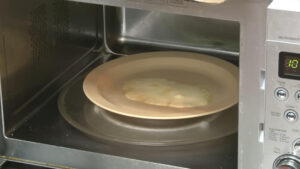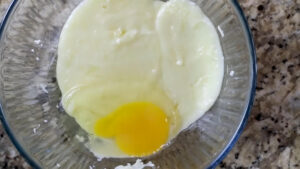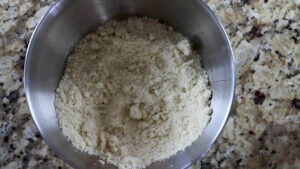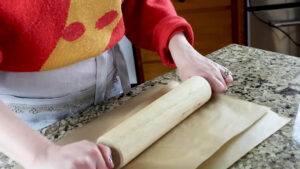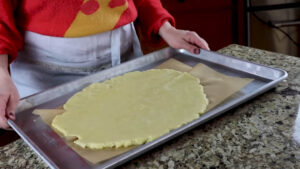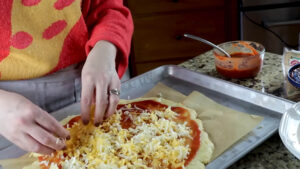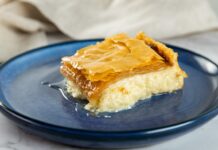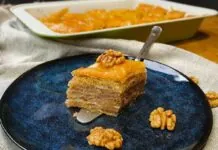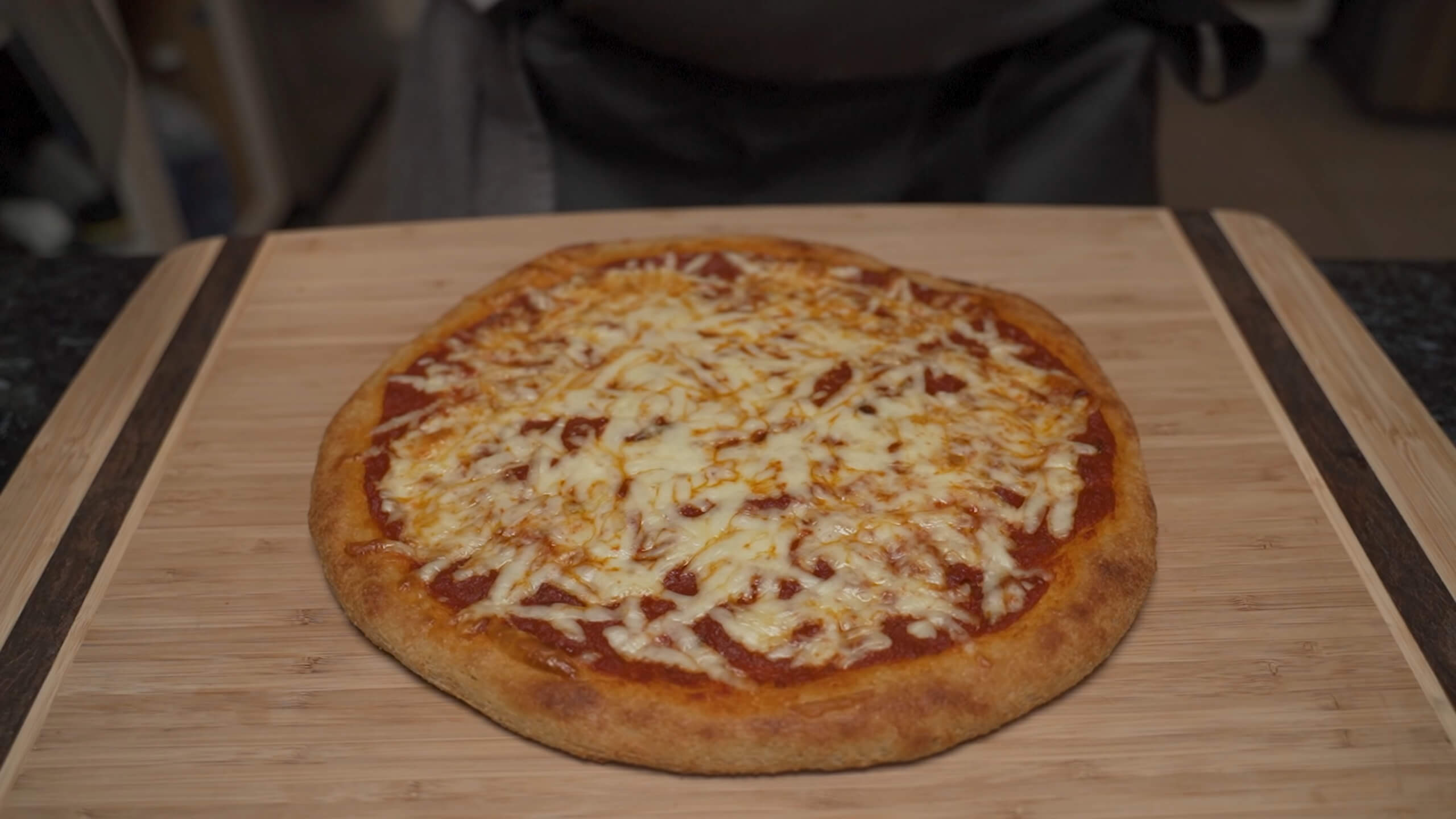
Fathead Dough Keto Pizza Crust offers a delicious alternative for those following a low-carb diet.
This recipe combines simple ingredients to create a satisfying and versatile crust. Enjoying pizza without the guilt becomes easy with this approach.
Let’s see how it’s made.
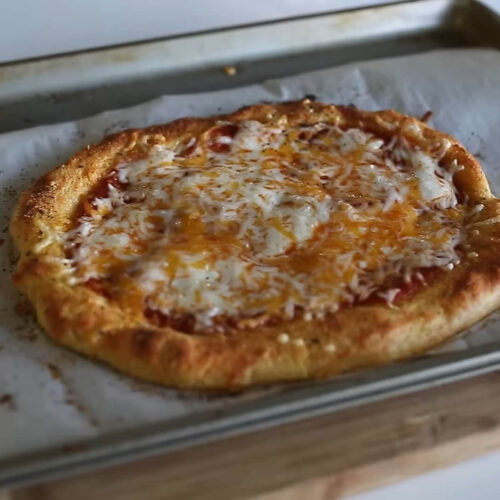
Fathead Dough Keto Pizza Crust
Equipment
- Microwave-Safe Bowl
- Mixing Bowl
- Whisk
- Rolling Pin
- Parchment Paper
- Baking Sheet or Pizza Stone
- Spatula
Ingredients
- 2 ½ Cups Shredded Mozzarella Cheese
- 2 Ounces Cream Cheese
- 1 Whole Large Egg
- 1 Cup Almond Flour
- ½ Teaspoon Baking Powder
- ½ Teaspoon Italian seasoning or garlic powder Optional
Instructions
- Melt the CheesesIn a microwave-safe bowl, combine the shredded mozzarella cheese and cream cheese. Microwave for 1 minute, stirring halfway through until melted and smooth.
- Combine with EggAdd the egg to the melted cheese mixture and mix until fully combined.
- Mix Dry IngredientsIn a separate mixing bowl, whisk together the almond flour, baking powder, and optional seasonings (if using). Gradually add the dry mixture to the cheese mixture, stirring until a sticky dough forms.
- Shape the DoughPlace the dough between two sheets of parchment paper. Use a rolling pin to roll it out to your desired thickness. For a crispier crust, roll it thinner.
- Pre-Bake the CrustPreheat your oven to 400°F (200°C). Carefully transfer the rolled-out dough (still on the parchment paper) onto a baking sheet or pizza stone. Bake for 12 to 15 minutes or until golden brown and firm.
- Add Toppings and Bake AgainRemove the crust from the oven. Add your favorite pizza sauce, cheese, and toppings. Return to the oven for another 10 minutes or until the cheese is bubbly and melted.
- ServeLet the pizza cool for a couple of minutes before slicing. Enjoy it while it's hot!
Video
Notes
- Keep the dough manageable: If the dough becomes difficult to handle, pop it back in the microwave for 10-15 seconds to soften it.
- Adjust baking time: Keep an eye on the crust while baking, as oven temperatures can vary. You want a golden and firm texture before adding toppings.
- Prevent sticking: Rolling the dough between two sheets of parchment paper prevents it from sticking and makes it easier to transfer.
What Are the Best Toppings for a Keto Pizza Crust?
Selecting the right toppings can transform a keto pizza crust into a delightful meal. Here are some excellent choices to consider.
Classic Meat Toppings
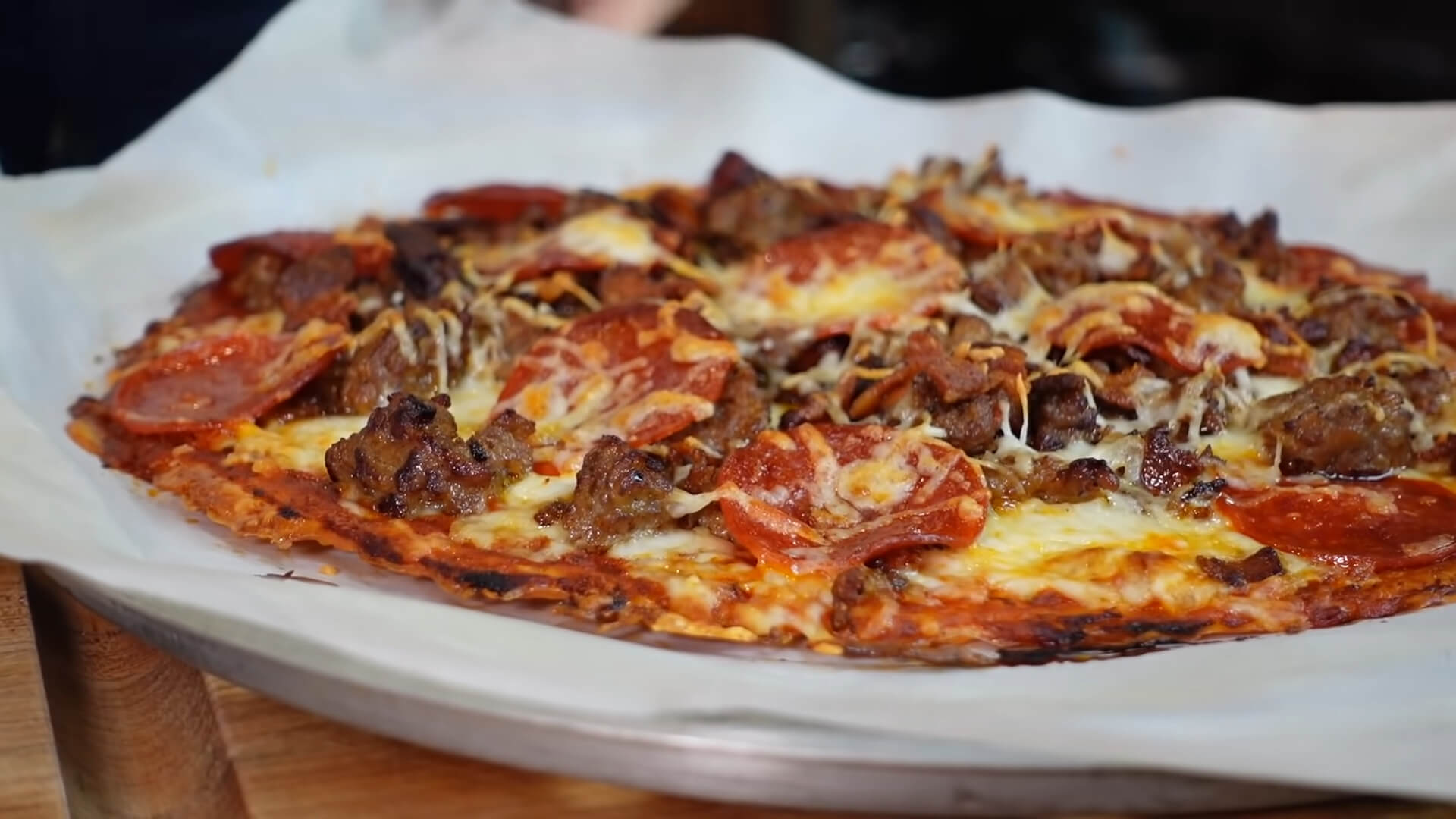
- Pepperoni: This popular choice adds a spicy kick. It is low in carbs and high in flavor.
- Sausage: Italian sausage offers a savory option. Choose varieties without added sugars for the best results.
- Bacon: Crispy bacon bits enhance flavor and texture. They bring a satisfying crunch to every bite.
Fresh Vegetables
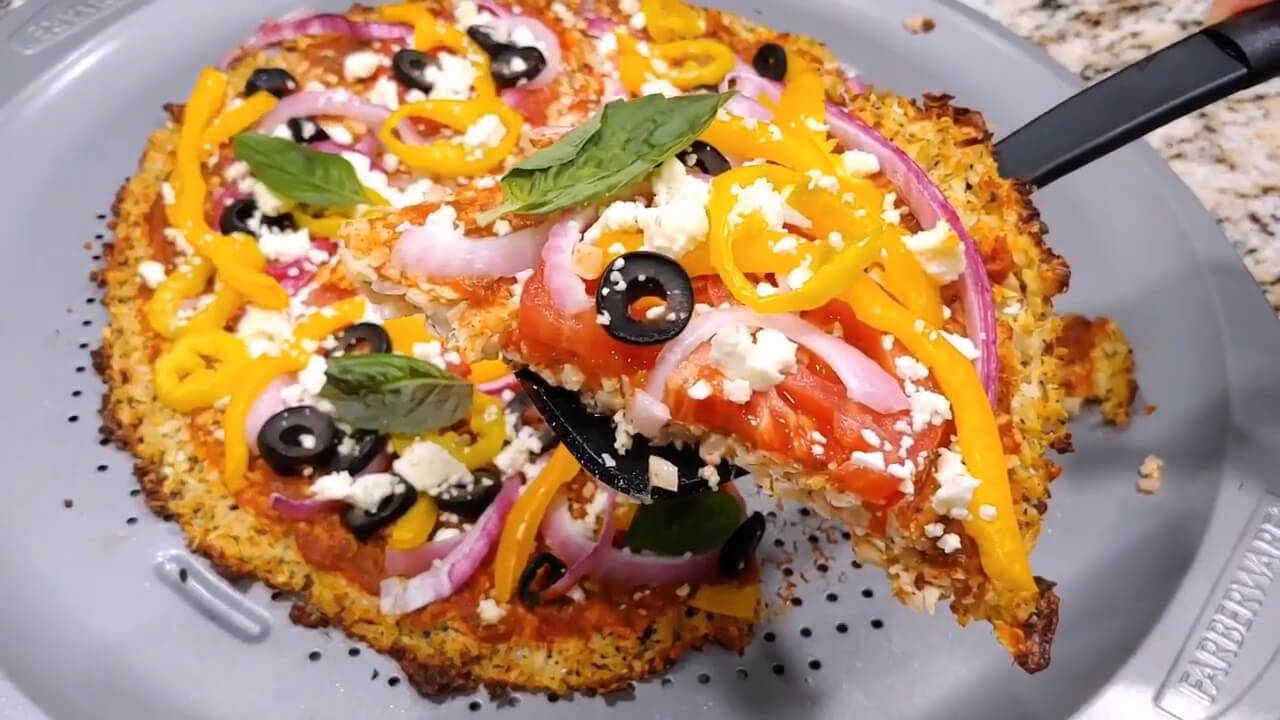
- Bell Peppers: Colorful and crunchy, bell peppers add sweetness and nutrients. Slice them thin for even cooking.
- Mushrooms: These earthy fungi absorb flavors well. Use fresh or sautéed mushrooms for added depth.
- Spinach: A nutrient-dense option, spinach wilts down nicely and adds freshness.
Cheesy Additions
- Mozzarella: Essential for that gooey, melty texture. Use shredded low-moisture mozzarella for the best results.
- Parmesan: Sprinkle grated Parmesan on top for a sharp, salty flavor that complements other toppings.
- Feta: Crumbled feta adds a tangy twist. It pairs well with Mediterranean toppings like olives and artichokes.
If you’re looking to experiment, why not add cream brie to your pizza? This rich and creamy cheese can elevate your pizza to a whole new level. We’ve previously explored the differences between double and triple cream brie, which can help you choose the perfect option for your culinary creations.
Flavorful Sauces
- Low-Carb Marinara: A classic choice that enhances the pizza without excess sugar. Look for brands that are keto-friendly.
- Pesto: This herby sauce adds freshness and depth. Use it as a base or drizzle it on top after baking.
- Alfredo Sauce: Rich and creamy, Alfredo sauce creates a decadent pizza experience. Pair it with chicken or vegetables.
- Simple Tomato Sauce: I recently found a simple 3-step sauce that is perfect for pizza. You can check the recipe here.
How Can I Make a Gluten-Free Version of Keto Pizza Crust?
Creating a gluten-free keto pizza crust is straightforward and delicious. Follow these steps to ensure success.
Choose the Right Flour
- Almond Flour: This is the most popular choice for keto recipes. It provides a nutty flavor and low-carb content.
- Coconut Flour: Another viable option, but it requires more moisture due to its absorbent nature. Use about one-fourth the amount compared to almond flour.
How Does the Texture of Keto Pizza Crust Compare to Traditional Pizza Crust?
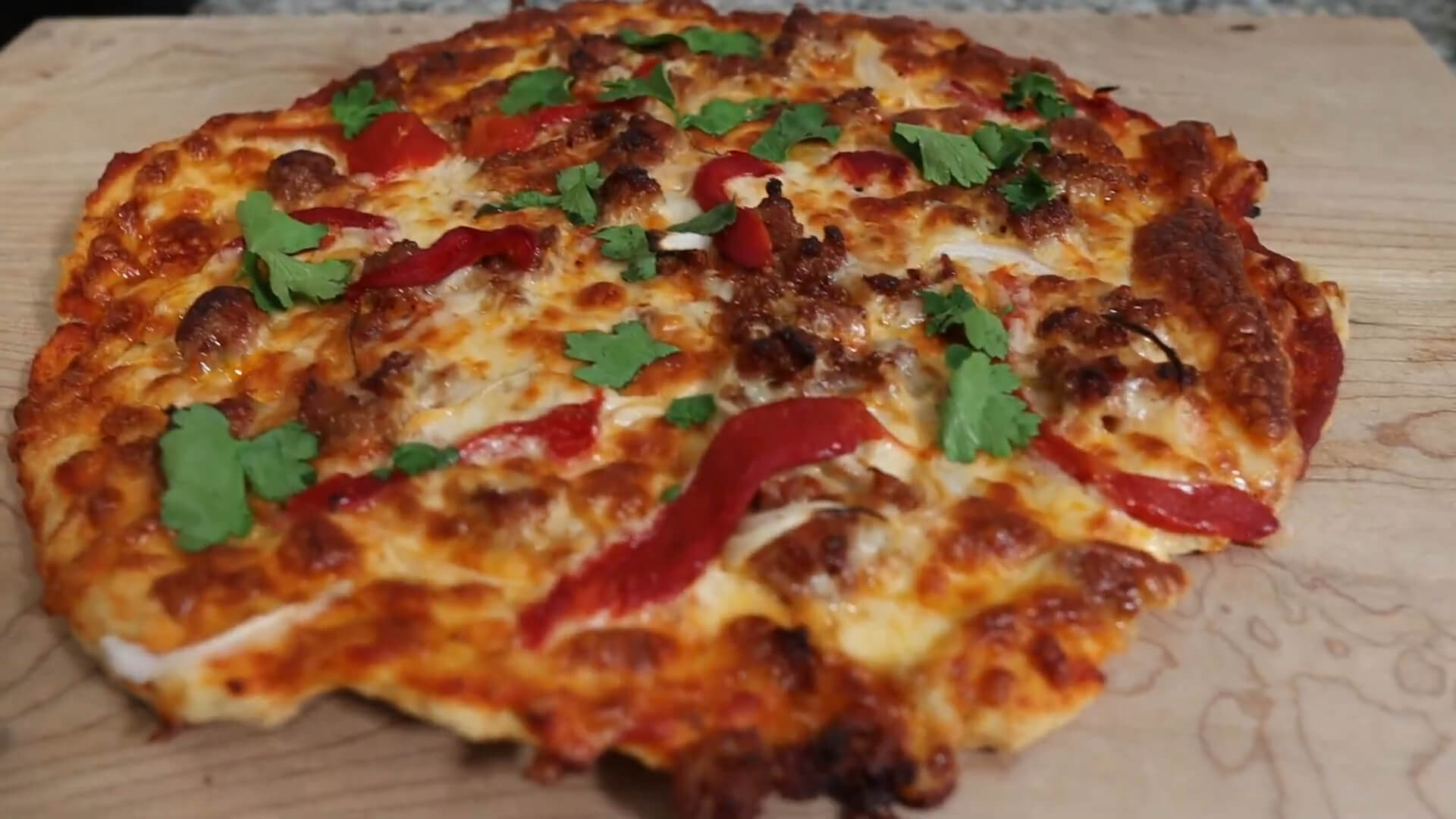
Keto pizza crust offers textural differences from traditional options, providing a unique experience.
Chewy Yet Crisp
Keto crusts, especially those made with fathead dough, provide a chewy interior with a crispy exterior. This combination mimics traditional pizza textures without relying on carbs.
Less Bread-Like Quality
Traditional pizza crusts rely on wheat flour, giving them a bread-like quality that many enjoy. Keto versions lack gluten, resulting in a different mouthfeel but still satisfying overall.
Can I Use a Different Type of Flour Instead of Almond Flour for Keto Pizza Crust?
Yes, alternative flours can work well in keto pizza crust recipes, offering variety while maintaining low-carb goals.
Coconut Flour
Coconut flour is an option but requires adjustments in liquid ratios due to its absorbent nature. Use about one-fourth the amount compared to almond flour and increase liquid ingredients accordingly.
Sunflower Seed Flour
This flour serves as an excellent alternative for those with nut allergies. It provides similar texture and flavor profiles as almond flour while remaining low in carbs.
Lupin Flour
Lupin flour can also substitute almond flour but should be used in smaller quantities due to its density. Reduce the amount by half when substituting for almond flour in recipes.
FAQs
Can I make Fathead Dough without an egg?
Yes, some variations of Fathead Dough do not require an egg. Omitting the egg can simplify the process and reduce the risk of cooking the egg when mixing with melted cheese. The dough will still hold together well without it.
How can I store leftover Fathead Dough?
Leftover Fathead Dough can be stored in an airtight container in the refrigerator for up to one week. For longer storage, wrap it tightly in plastic wrap and freeze it for up to three months. Thaw in the refrigerator before using.
Can I use different types of cheese in Fathead Dough?
While mozzarella is the most common cheese used, other cheeses like cheddar or provolone can be used. However, these cheeses may alter the flavor and texture of the dough, so adjustments might be necessary.
Is it possible to make Fathead Dough with yeast?
Yes, you can make a yeasted version of Fathead Dough. To do this, activate instant yeast with warm water and add it to the dough mixture along with baking powder and eggs. This will give the dough a different texture and flavor profile.
What are some creative uses for Fathead Dough?
Fathead Dough is incredibly versatile. Besides pizza crust, it can be used to make breadsticks, cinnamon rolls, calzones, pastries, and even low-carb lasagna sheets. Its adaptability makes it a staple in many keto kitchens.
Last Words
Fathead Dough Keto Pizza Crust offers a fantastic way to enjoy pizza while sticking to low-carb goals. Combining mozzarella and almond flour results in a texture that satisfies even those who don’t follow a keto diet. With just a few simple ingredients and straightforward steps, making this crust turns into a fun kitchen project.

